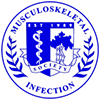Authors: Allen M, MD, Neumann C, Roberts CS, MD, Seligson D, MD, Ramirez JA, MD, University of Louisville, Louisville, KY
Title: Emergence of Community-Associated Methicillin Resistant Staphylococcus Aureus as Etiology of Osteomyelitis: Results from the BAJIO Study Group
Purpose: Data on bone infections due to community-associated MRSA (CA-MRSA) is scarce. The objective of this study was to evaluate the incidence and outcomes of CA-MRSA versus hospital-associated MRSA (HA-MRSA) osteomyelitis.
Methods: This was a prospective, observational study of patients with MRSA osteomyelitis hospitalized in our academic medical center during the period January 2007 to March 2008. Local IRB review was obtained in each participating hospital. Data were collected on a case report form, then entered into a computer, and transferred electronically to the Bone and Joint Infection Organization (BAJIO) coordinating center at the University of Louisville (UofL). Inclusion critieria was defined as patients having osteomyelitis if they presented with clinical symptoms of bone infections and with either radiographic, surgical or culture results indicative of osteomyelitis. Only patients with cultures positive for MRSA were included in this study. The onset of osteomyelitis was characterized as acute or chronic based on the temporal relationship with onset of symptoms and the inciting event. Clinical outcomes, classified as success or failure, were defined at 6 months follow-up. Treatment success was considered in patients with a) infection arrested (patients with no clinical or laboratory evidence of infection with all antibiotics discontinued) or b) infection arrested plus suppressive therapy (patients with no clinical or laboratory evidence of infection but continuing oral antibiotics due to a high risk of relapse). Treatment failure was considered in patients with a) failure during antibiotic therapy, or b) relapse (patients developed clinical and laboratory deterioration after the discontinuation of antibiotic therapy). MRSA isolates collected during the period of hospitalization were tested for SCCmec, pulsed-field gel electrophoresis (PFGE) type and the PVL gene. Polymerase chain reaction (PCR) analysis was also performed to identify MRSA isolates carrying the PVL gene. CA-MRSA was defined as USA-300, SCCmec type IV, PVL (+).
Results: From a total of 34 patients with MRSA osteomyelitis, 17 isolates were CA-MRSA. Mean ages for the CA-MRSA group and the HA- MRSA group was 45 and 53, respectively. 82% of the patients were male in the CA-MRSA group and 76 % in the HA-MRSA group. From the 17 patients with CA-MRSA osteomyelitis, 9 were acute and 8 were chronic. From the 17 patients with HA-MRSA osteomyelitis, 7 were acute and 10 were chronic. Treatment failure occurred in 3 of 17 (21%) patients with CA-MRSA and 6 of 17 (35%) patients with HA-MRSA. Patient characteristics are shown in Table 1.
Discuassion and Conclusion: We found that 50% of MRSA osteomyelitis was produced by CA-MRSA strains. Our data failed to demonstrate a greater incidence of treatment failure at 6 month follow-up in patients with osteomyelitis due to CA-MRSA. Even though the rate of treatment failure in our study was similar for patients with CA-MRSA versus patients with HA-MRSA, patients with more severe initial clinical presentation were most likely infected with CA-MRSA strains. This study indicates that CA-MRSA oseomyelitis sometimes occurs as a result of hematogenous seeding in some patients from seemingly benign skin and soft tissue infections. We also documented the contiguous spread of infection to bone from adjacent soft tissues and joints. The direct invasion of bone from a soft tissue infection is unusual in a patients with healthy bone and normal periosteum. In conclusion, this study indicates the emergence of CA-MRSA as an important etiology of osteomyelitis. A better understanding of the virulence factors that allow CA-MRSA to rapidly invade and cause necrosis of the bone are urgently needed to develop new management strategies.

